This article explains how to use Brep | Plane to get the intersection of an object and a plane.
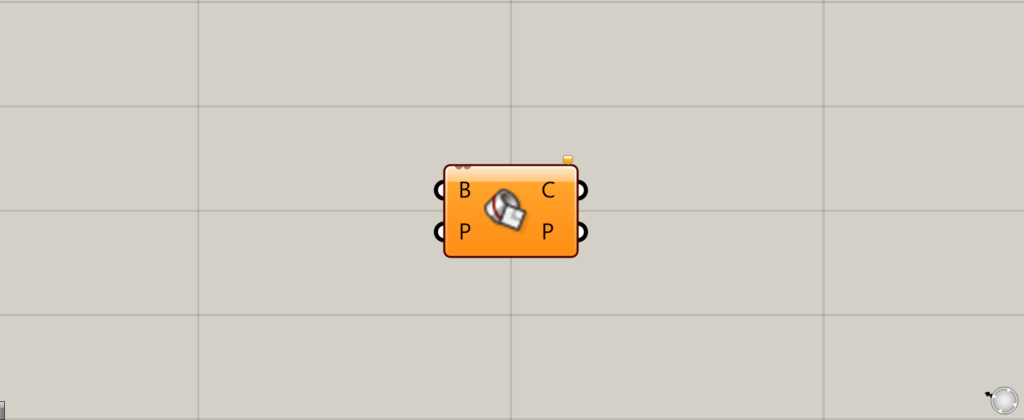
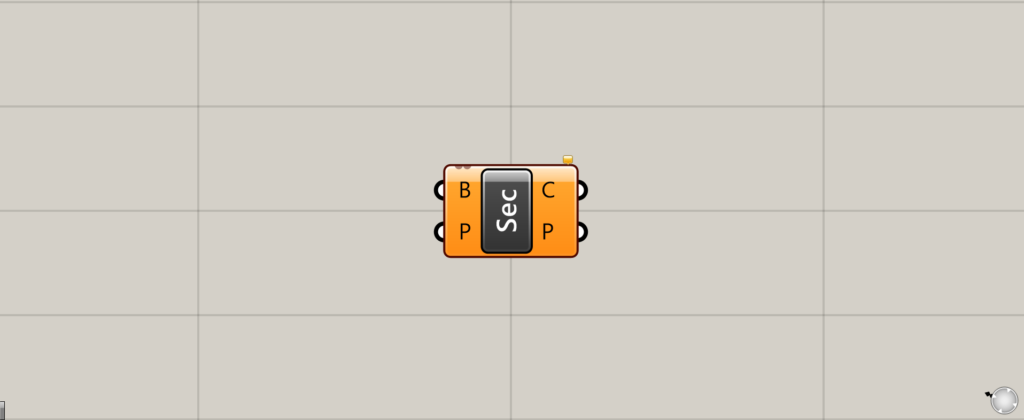
On the Grasshopper, it is represented by either of the two above.
Obtaining the intersection of an object and a plane or surface
Brep | Plane can be used to obtain the intersection of an object and a plane or surface.
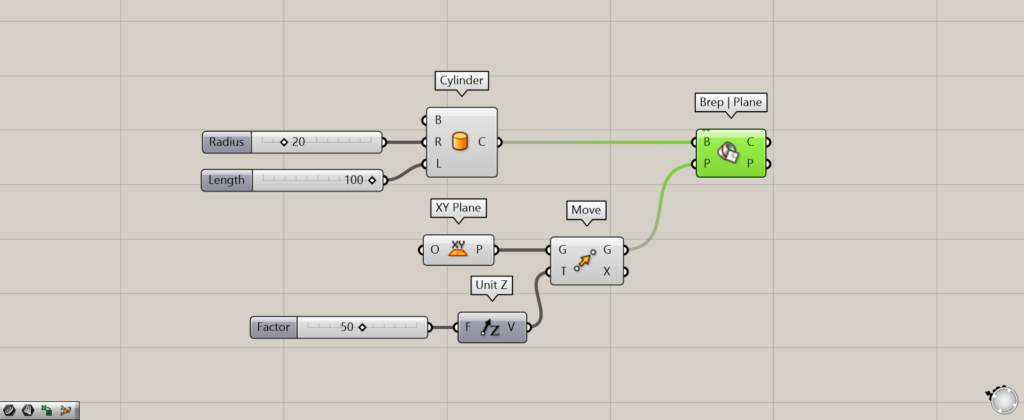
Components used: (1) Cylinder (2) XY Plane (3) Unit Z ( 4 ) Move (5) Brep | Plane
This time, we will create a cylinder with Cylinder and intersect it with a plane created with XY Plane.
Move the XY Plane to the middle position of the cylinder using Move and Unit Z.
In this case, we set the height of the cylinder to 100, so we enter half of that height, 50, in Unit Z.
Then, connect Cylinder to the Brep | Plane(B)
Connect Move to the XY Plane(P).
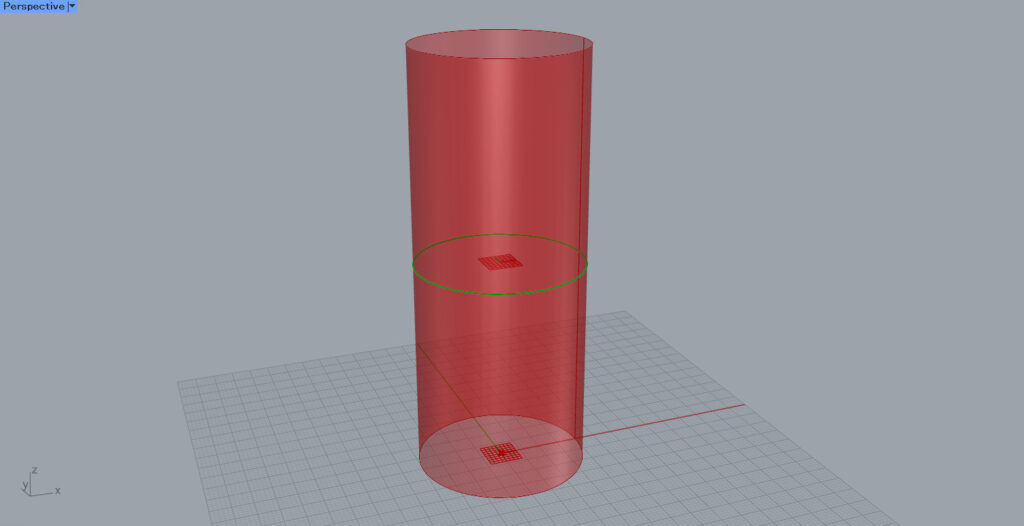
As you can see, the intersection curve between the cylinder and the plane is created.
In this case, the intersection was created at the center of the cylinder, so the intersection curve is created at the center position.
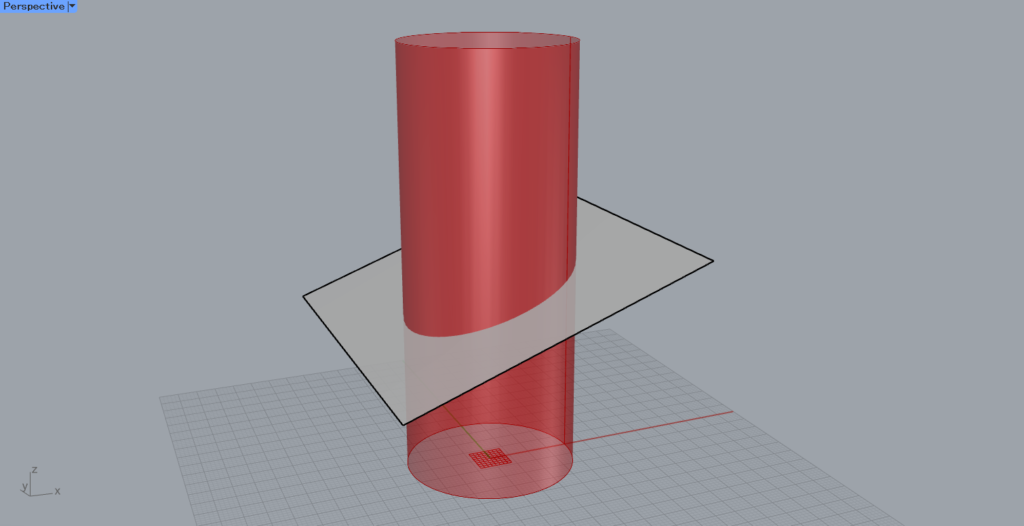
Instead of planes, plane surfaces can also be used.
This time, we will use a plane surface as shown in the image above.
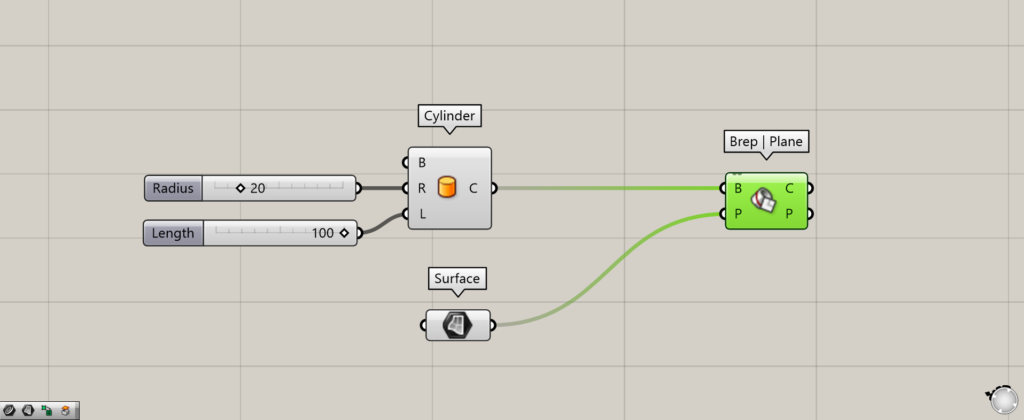
Additional components: (1) Surface
Connect the surface set in Surface to the Brep | Plane(P).
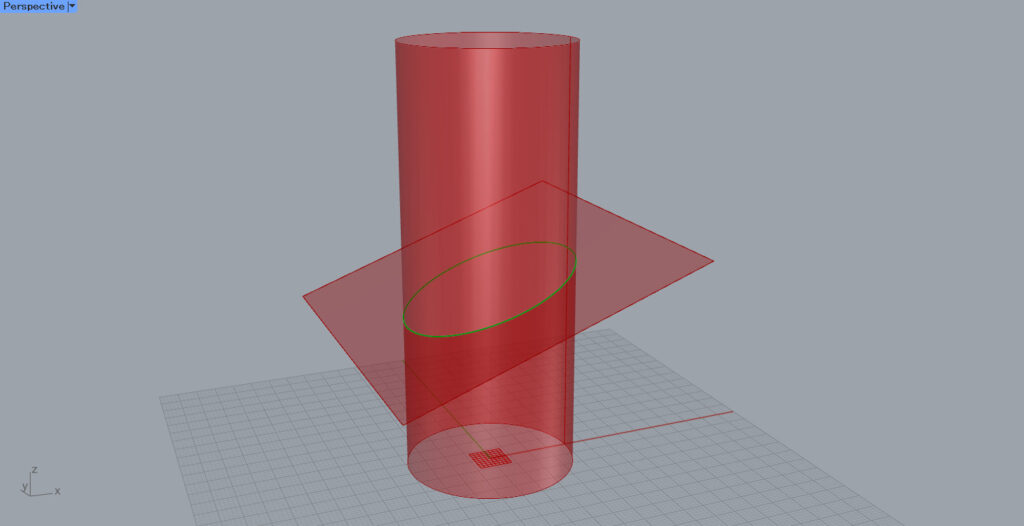
Then, an intersection curve is created.
However, this method is possible only for plane surfaces.
Note that an error will occur if the surface is three-dimensional.
Output Data
Let’s take a look at the data output from Brep | Plane.
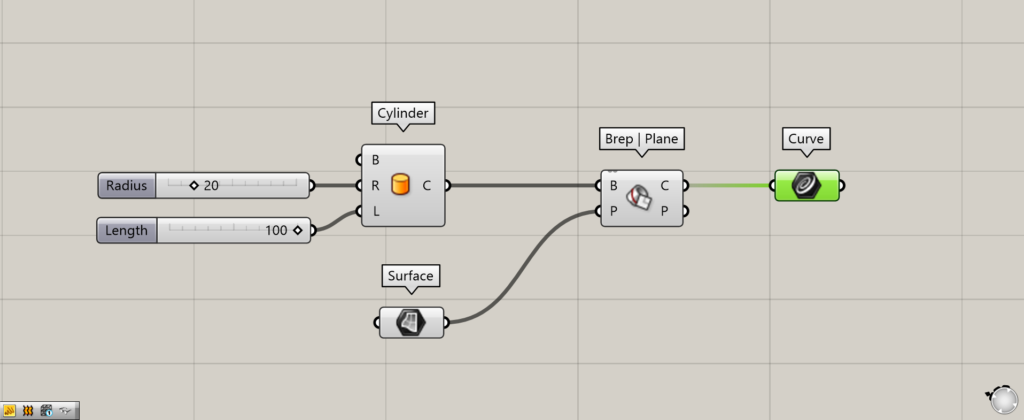
The Brep | Plane(C) outputs the curve data of the intersection.
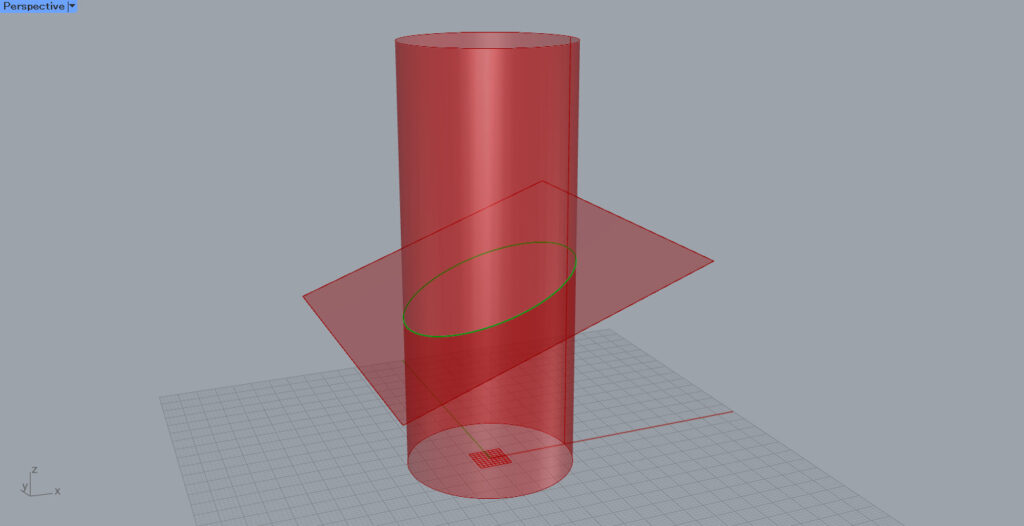
As you can see, the intersection curve data is output.
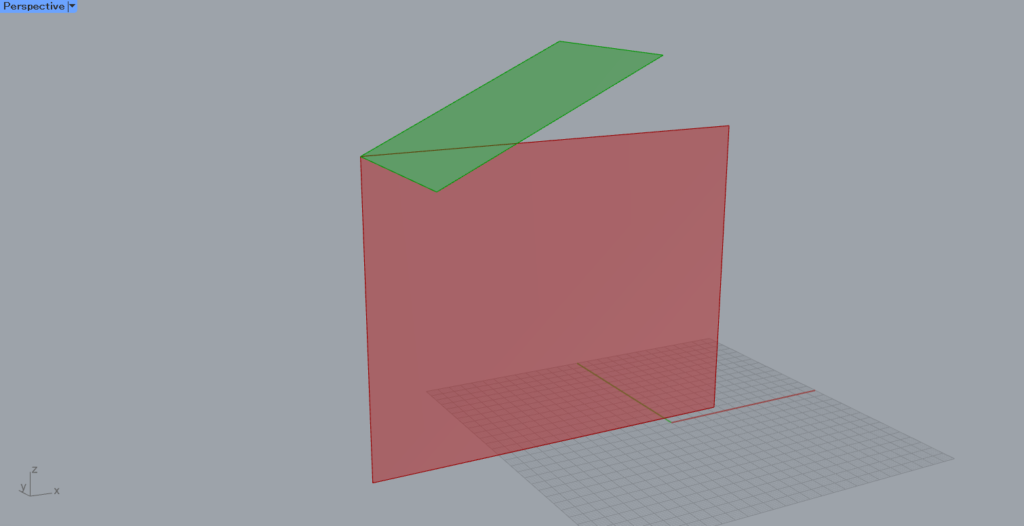
To check the data from the Brep | Plane(P), we will use as an example a surface whose corners are at the same position as each other, as shown in the image above.
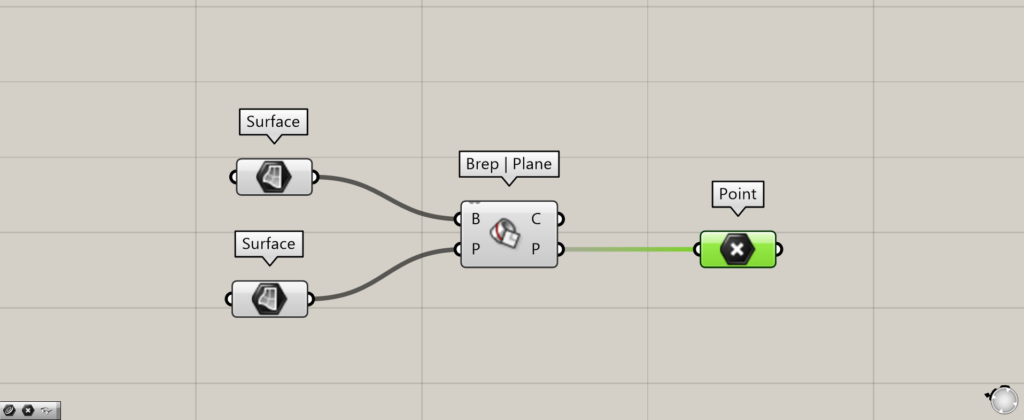
The Brep | Plane(P) outputs point data when there is an intersection.
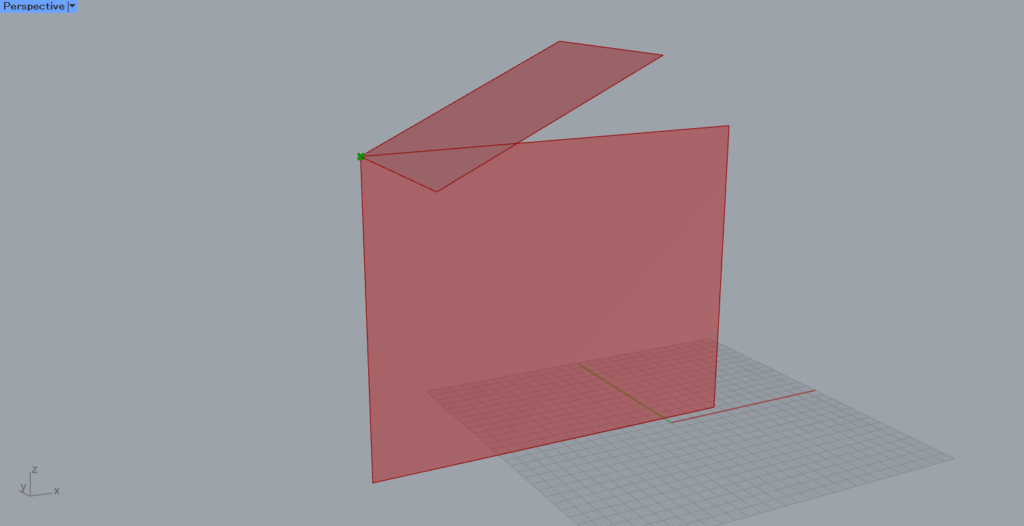
Thus, if one point is intersected, the intersection is output.
List of Grasshopper articles using Brep | Plane component↓

![[Grasshopper] How to use Brep | Plane to get the intersection of an object and a plane](https://iarchway.com/wp-content/uploads/2025/09/Brep-Plane.png)
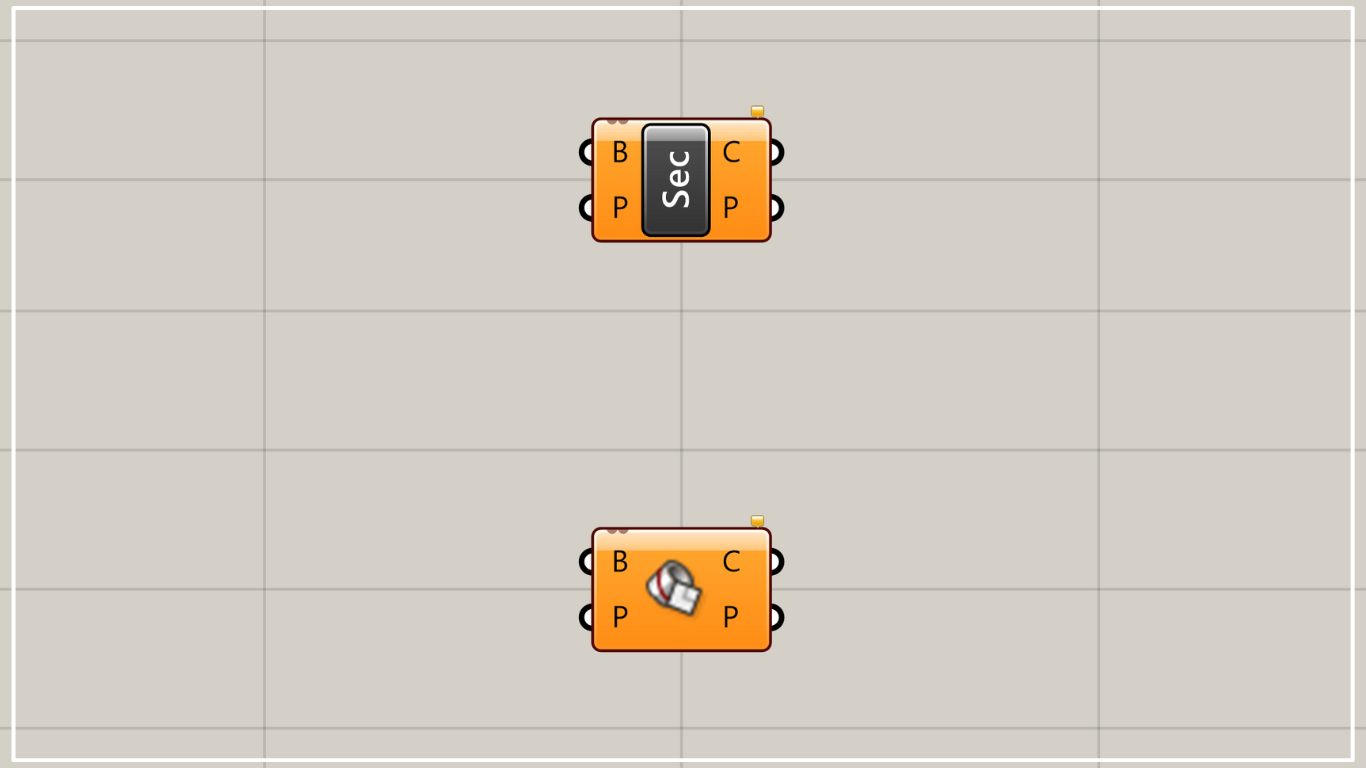


Comment